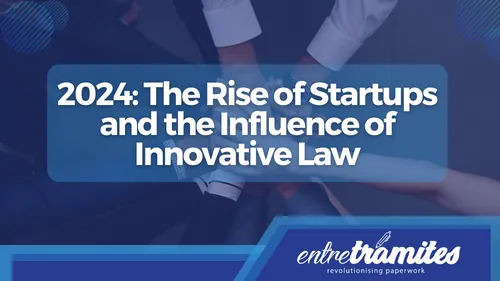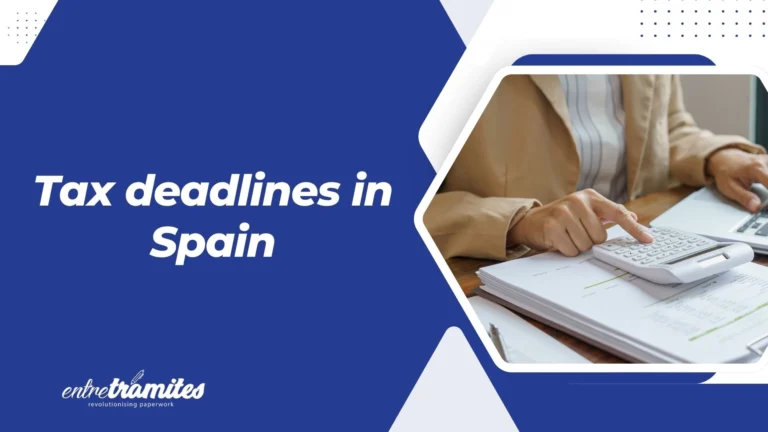From its peak in 2021 to a steady decline in the years since the startups landscape has been on a rollercoaster of ups and downs. However, projections for 2024 become exceptionally encouraging.
The year 2021 marked a milestone for many emerging tech companies, witnessing a boom in investment and the emergence of numerous unicorns, including Stripe, ByteDance, and the definitive takeoff of SpaceX, the space company led by Elon Musk.
Since then, there has been a gradual decline that has served as a reminder of the cyclical functioning of the economy. All signs indicate, however, that the tide will change in 2024. Reasons such as more robust economic growth and increased investment by venture capital firms, which reached historic lows in 2023, give renewed hope.
A resurgence in growth
After an exhaustive analysis of the public market, many tech companies are looking for a promising year in software sales in 2024. 2023 was characterized by the optimization of expenses by technology buyers, but now they are seeking to accelerate the pace. More activity is anticipated in the market for software sales, the star product of startups, this year.
Venture capital leaves stagnation behind
The year 2023 was not favorable for venture capital investment firms. It was even worse than 2022, which in turn had been more challenging than the prosperous 2021. The constant decrease in available capital has slowed down the activities of startup founders.
However, everything points to a change in the cycle in 2024. A reduction in interest rates is expected, strengthening technology stocks and valuations in general. When cash loses value, investors look for new horizons for their funds.
This dynamic bears some similarity to the venture capital bubble of 2021. While a full return to those times is not expected, a stable economy, declining inflation, and growing customer interest in artificial intelligence could be reason enough. for greater investment in startups.
The rebirth of the IPO market
News of potential IPOs for companies such as Shein and Reddit in 2024 indicates that some companies are breaking the ice in a public market that has been frozen. In addition, leading venture capital firms predict that artificial intelligence-driven automation will make startups more efficient, reducing costs and improving profitability ratios.
With these prospects, a more encouraging growth outlook is predicted in 2024, marking a period of recovery for startups. After years of declining charts, they are likely to reverse in 2024.
The Startups Law: changes and requirements
The Startups Law has introduced significant changes in the entrepreneurial ecosystem. Now it is possible to create startups with just 1 euro in less than 6 hours through an electronic document and its registration in the Mercantile Registry.
One of the biggest attractions for investors is the tax advantages offered by this regulation. The tax rate on corporate taxes and on the income of non-residents is reduced, going from 25% to 15% in the first four years since the tax base is positive. In addition, the deferral of tax debt is allowed without guarantees or interest, and fractional payments are eliminated.
The law also improves the tax exemption for purchasing shares or participations, increasing the deduction base for investment in newly created companies from 60,000 to 100,000 euros annually and raising the deduction percentage from 30% to 50%.
To be considered a startup, the entity must meet some requirements, such as being based in Spain, developing innovative projects, and having a scalable business model.
Future perspectives and news
The Startups Law not only brings tax advantages but also exempts salaried self-employed workers who create a startup from paying fees to the RETA for 3 years, thus promoting the attraction of entrepreneurial talent in Spain.
Since its implementation, an increase has been observed in applications for visas and residence authorizations from entrepreneurs who wish to establish themselves in Spain to undertake business.
With these reforms and encouraging prospects, the year 2024 is shaping up to be a turning point for startups, offering more fertile and promising ground for innovation and business growth in the country.
Do you need more information about Startups in Spain?
At Entre Trámites we offer various services of management, advice, and support in bureaucratic procedures for self-employed, SMEs, and other types of companies. Contact us! Through our contact form, you can leave your details for us to call you, schedule a free consultation, or simply text our WhatsApp.





